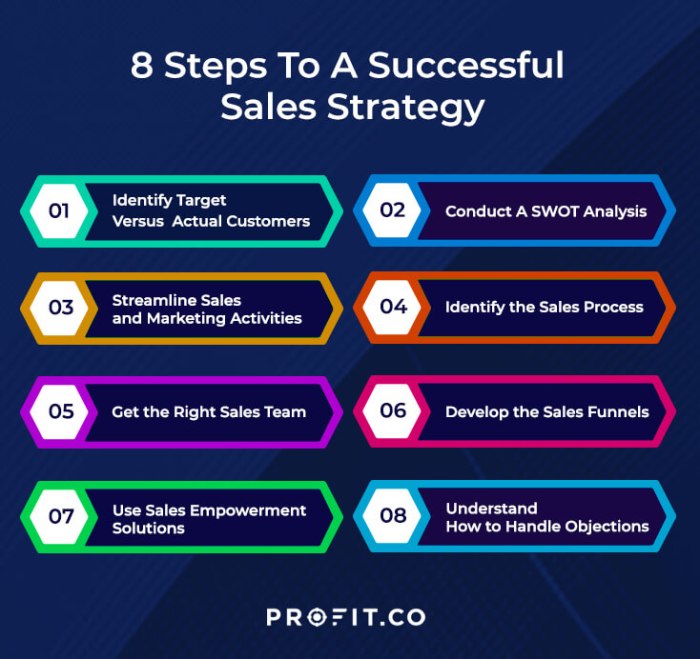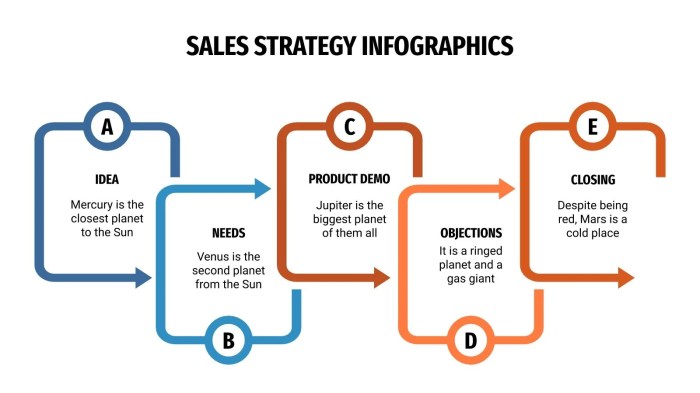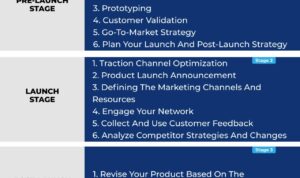Developing Sales Strategies sets the stage for a dynamic exploration of market insights, goal setting, CRM systems, and sales team development, all essential components in driving successful sales outcomes.
Get ready to uncover the secrets to creating a robust sales strategy that will elevate your business to new heights.
Understanding the Market

Market research plays a crucial role in developing effective sales strategies. By understanding the market, businesses can identify opportunities, anticipate trends, and stay ahead of the competition.
Importance of Market Research
Market research helps businesses gather valuable insights about their target audience, competitors, and industry trends. It enables companies to make informed decisions, identify potential customers, and tailor their sales strategies to meet customer needs effectively.
- Conducting surveys and interviews to gather feedback from customers.
- Analyzing sales data and trends to identify patterns and opportunities.
- Utilizing social media analytics to understand customer behavior and preferences.
Market Segmentation for Tailoring Sales Strategies, Developing Sales Strategies
Market segmentation involves dividing the target market into specific groups based on characteristics such as demographics, psychographics, and behavior. This allows businesses to create personalized sales strategies that resonate with different customer segments.
- Creating buyer personas to understand the needs and preferences of different customer groups.
- Customizing marketing messages and product offerings to cater to specific segments.
- Implementing targeted advertising campaigns to reach different customer segments effectively.
Tools and Techniques for Market Analysis
Various tools and techniques are used for market analysis to gather data, analyze trends, and make informed decisions.
- SWOT analysis to assess strengths, weaknesses, opportunities, and threats in the market.
- Competitor analysis to identify key competitors and their strategies.
- Market surveys and focus groups to gather feedback from customers.
Setting Sales Objectives

Setting clear and achievable sales objectives is crucial for guiding the sales team towards success. These objectives serve as a roadmap, providing direction and focus for sales efforts. Without clearly defined goals, it becomes challenging to measure progress, track performance, and make necessary adjustments to improve sales outcomes.
The SMART Criteria for Setting Sales Goals
- Specific: Objectives should be clear and well-defined, leaving no room for ambiguity. For example, setting a goal to increase sales by 20% in the next quarter.
- Measurable: Goals should be quantifiable so that progress can be tracked and measured. This allows for monitoring performance and making data-driven decisions.
- Achievable: Objectives should be realistic and attainable within the given resources and timeframe. Setting unattainable goals can demotivate the sales team.
- Relevant: Goals should align with the overall business objectives and contribute to the company’s growth and success. This ensures that sales efforts are in line with the organization’s strategic direction.
- Time-bound: Objectives should have a specific deadline or timeframe for completion. This creates a sense of urgency and helps prioritize tasks effectively.
Aligning Sales Objectives with Overall Business Goals
By aligning sales objectives with overall business goals, companies can drive success and maximize results. When sales goals are directly linked to broader organizational objectives, it creates synergy and ensures that every sales effort contributes to the company’s growth and profitability. This alignment also fosters a sense of unity and shared purpose among different departments, leading to a more cohesive and coordinated approach towards achieving business objectives.
Customer Relationship Management
Customer Relationship Management (CRM) systems play a crucial role in developing effective sales strategies by helping businesses manage and analyze customer interactions throughout the entire sales cycle. These systems allow companies to track customer data, preferences, and behaviors, enabling them to tailor their sales approaches for better results.
Role of CRM Systems
- Centralized Customer Data: CRM systems provide a centralized database where businesses can store all customer information, including contact details, purchase history, and communication preferences.
- Improved Communication: By keeping track of customer interactions, businesses can personalize their communication strategies, leading to more meaningful and effective engagements.
- Enhanced Sales Forecasting: CRM systems help in predicting customer behavior and trends, allowing businesses to make informed decisions and optimize their sales strategies.
Personalized Customer Interactions
CRM systems enable personalized customer interactions by allowing businesses to segment customers based on their preferences, behavior, and purchase history. By understanding individual customer needs and preferences, businesses can tailor their marketing messages and sales offers, leading to higher conversion rates and customer satisfaction.
CRM Software Solutions
Salesforce:
Salesforce is a widely used CRM software solution that offers a range of features for sales management, including lead tracking, pipeline management, and performance analytics.
HubSpot CRM:
HubSpot CRM is another popular CRM software that provides tools for managing customer interactions, tracking deals, and analyzing sales performance.
Zoho CRM:
Zoho CRM is known for its user-friendly interface and customizable features, making it a suitable choice for small and medium-sized businesses looking to streamline their sales processes.
Sales Team Training and Development: Developing Sales Strategies
Training and development are crucial aspects of ensuring sales team success. Continuous training helps sales representatives stay updated with the latest industry trends, product knowledge, and sales techniques. It also boosts morale, motivation, and overall team performance.
Coaching and Mentoring for Enhanced Performance
Coaching and mentoring play a significant role in enhancing sales team performance. Through personalized guidance and feedback, sales managers can help individuals identify their strengths and areas for improvement. This tailored approach fosters skill development, boosts confidence, and ultimately leads to improved sales results.
Successful Training Programs and Methods
- Role-playing exercises: Simulating real-life sales scenarios allows team members to practice their pitch, objection handling, and closing techniques in a safe environment.
- Product knowledge workshops: Deepening understanding of the product or service being sold enables sales reps to communicate its value more effectively to potential customers.
- Sales process training: Providing step-by-step guidance on the sales process helps team members streamline their approach, from prospecting to closing deals.
- Continuous feedback sessions: Regular one-on-one meetings between managers and sales reps help identify areas for improvement and offer support and encouragement.












